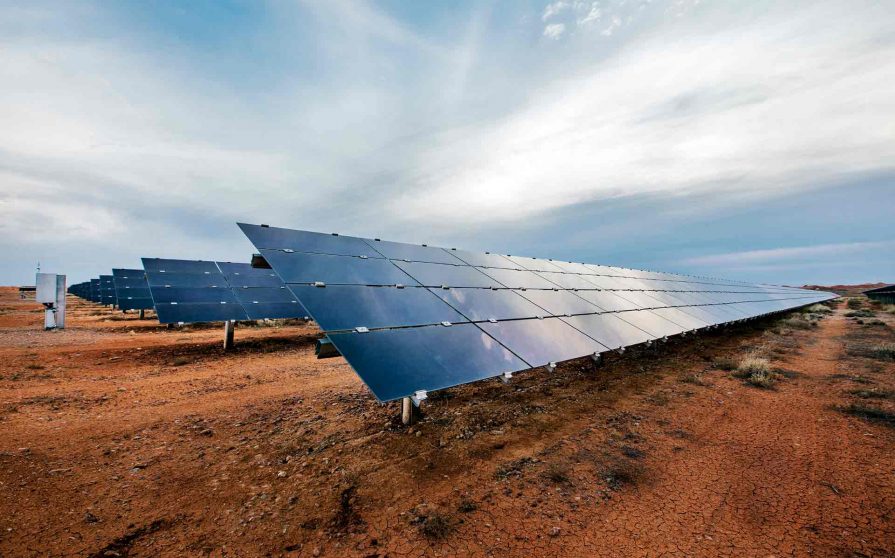Nanoveu has created a hydrophilic self-cleaning nanocoating for solar panels that the Perth-headquartered company claims can mitigate potential-induced degradation while delivering reduced cleaning costs in PV power systems in both dry and humid environments.
The ASX-listed Nanovue said it has successfully expanded its Nanoshield product suite to include the E-series hard coat, an antimicrobial coating that is self-maintaining, anti-fouling, anti-static and hydrophilic.
The transparent coating, which was developed from the company’s antiviral products and features metal oxide nano-sized particles, has been designed initially to inhibit the growth of algae and lichen on solar panels.
Nanoveu said algae growth is a major issue for solar systems deployed in tropical conditions and if left unchecked, can cause up to 26% energy loss in the module’s generation capacity.
As well as preventing algae growth, the company said the E-series coating’s hydrophilic and anti-static properties inhibit sand, dirt and all other surface contaminants clinging to panels.
Nanoveu Managing Director Alfred Chong said the coating’s self-cleaning properties mean contaminants wash away with rainwater.
“As opposed to water-repellent coatings, the hydrophilic effect reduces the angle of water droplets, allowing penetration beneath the contaminant,” the company said in a statement. “Antistatic, larger particle sized debris such as dirt and sand simply slide off the surface.”
Chong said the unique properties of the coating makes it suitable as a self-cleaning solution for solar systems in both humid and dry climates.
“With this new and unique development, we will work towards establishing Nanoveu as an attractive solution to enhance the performance of solar assets worldwide,” he said.
Soiling of solar panels remains a major issue for the industry with the International Energy Agency’s Photovoltaic Power Systems Programme (IEA-PVPS) estimating that lost revenue from PV module soiling amounts to more than $4.67 billion (USD 3.2 billion) per year.
The IEA-PVPS estimates that in 2018 soiling caused at least a 3% to 4% loss to global annual energy production from PV. This is expected to increase to around 4% to 5%, and $6 billion to $10 billion this year.
Nanoveu is currently testing the efficiency of the Nanoshield product in the Philippines with 55 MW of solar projects identified as suitable sites for the technology. The results of the trials are expected to be published in the first half of 2022.
In addition to the solar panel market, Nanoveu expects Nanoshield’s antifouling capability could be applied to other applications including ships and boat hulls that constantly require antifouling treatment.
This content is protected by copyright and may not be reused. If you want to cooperate with us and would like to reuse some of our content, please contact: editors@pv-magazine.com.









2 comments
By submitting this form you agree to pv magazine using your data for the purposes of publishing your comment.
Your personal data will only be disclosed or otherwise transmitted to third parties for the purposes of spam filtering or if this is necessary for technical maintenance of the website. Any other transfer to third parties will not take place unless this is justified on the basis of applicable data protection regulations or if pv magazine is legally obliged to do so.
You may revoke this consent at any time with effect for the future, in which case your personal data will be deleted immediately. Otherwise, your data will be deleted if pv magazine has processed your request or the purpose of data storage is fulfilled.
Further information on data privacy can be found in our Data Protection Policy.